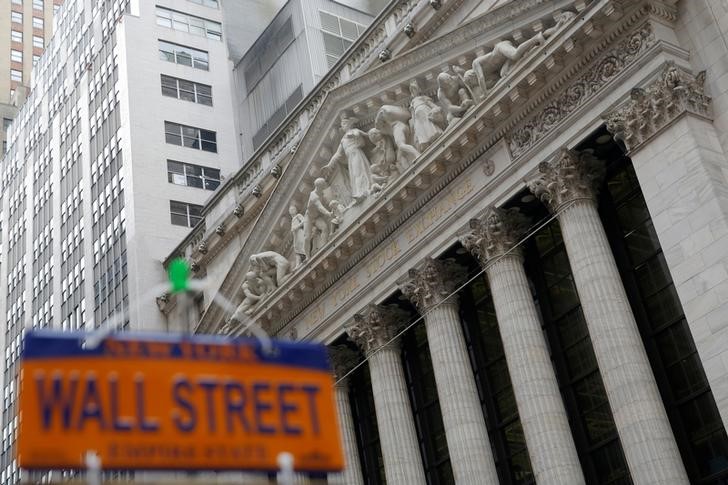By Geoffrey Smith
Investing.com -- U.S. stocks fell again in early trade on Monday, shrugging off the Federal Reserve's latest attempt to calm markets and focusing instead on the rising death toll and disruption to public life across the U.S.
Earlier, the Federal Reserve said it would increase its asset purchases by any volume necessary and introduced new lending facilities to backstop businesses and consumers. However, that only partly made up for the inability of Congress to agree on a 'phase 3' economic support package.
“It has become clear that our economy will face severe disruptions,” the Fed said in its statement. “Aggressive efforts must be taken across the public and private sectors to limit the losses to jobs and incomes and to promote a swift recovery once the disruptions abate.”
St. Louis Fed President James Bullard told Bloomberg on Sunday he thought the U.S. economy shrink by half in the second quarter as the virus' impact increases, although he predicted a vigorous rebound thereafter.
By 10:08 AM ET (1408 GMT), the Dow Jones Industrial Average had fallen 260 points or 1.4% to 18,914 points. The S&P 500 also fell 1.4% but the Nasdaq 100 held up better, falling only 0.2%.
The Fed's measures represented a sweeping extension of the backstop for private risk in the U.S. economy. In addition to the promise of unlimited Treasury and agency purchases, it also extended its program to include securities backed by commercial mortgages as well as both the primary and secondary market for corporate bonds, market segments that had shown signs of increasing stress last week as credit spreads blew out.
Futures on the main indices had turned up sharply before the opening but immediately ran into fresh selling pressure, amid frustration at the failure of Congress to roll out more comprehensive protections for businesses and workers.
"Other countries have already exceeded our efforts," said Grant Thornton chief economist Diane Swonk via Twitter. "No one will look back at any government and say you did too much. They will say, why didn’t you do more. The politics and how we want to structure our economy can be dealt with later."
Among individual stocks, General Electric (NYSE:GE) stock fell 2.3% after CEO Larry Culp said its aviation unit plans to cut its total U.S. workforce by about 10% amid a sudden stop in orders for airliners. In a letter to employees, Culp also said he will forgo his salary for the rest of 2020.
Stocks bucking the negative trend again included Netflix (NASDAQ:NFLX) and videoconferencing software group Zoom Video Communications (NASDAQ:ZM), who continue to ride a wave of bets that they will prosper from the spread of remote working and home confinement. Netflix has confirmed it has had to allow lower-quality streaming in various markets due to the surge in traffic coming to its site as a result of lockdown policies.
However, there were sharp losses in a number of investment funds specializing in less liquid assets.
Occidental Petroleum (NYSE:OXY) stock also fell 3.3% amid further weakness in crude oil, despite a Wall Street Journal report saying it's on the verge of striking a peace deal with activist investor Carl Icahn.
